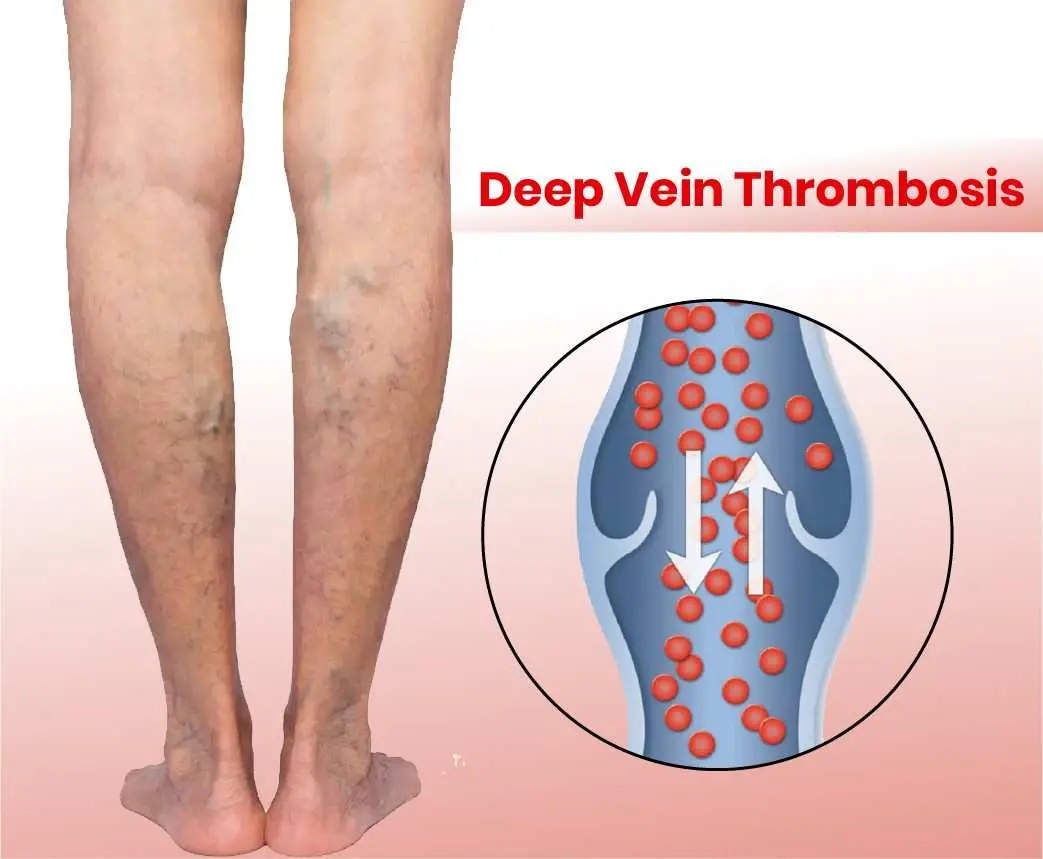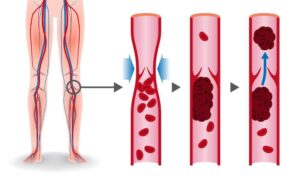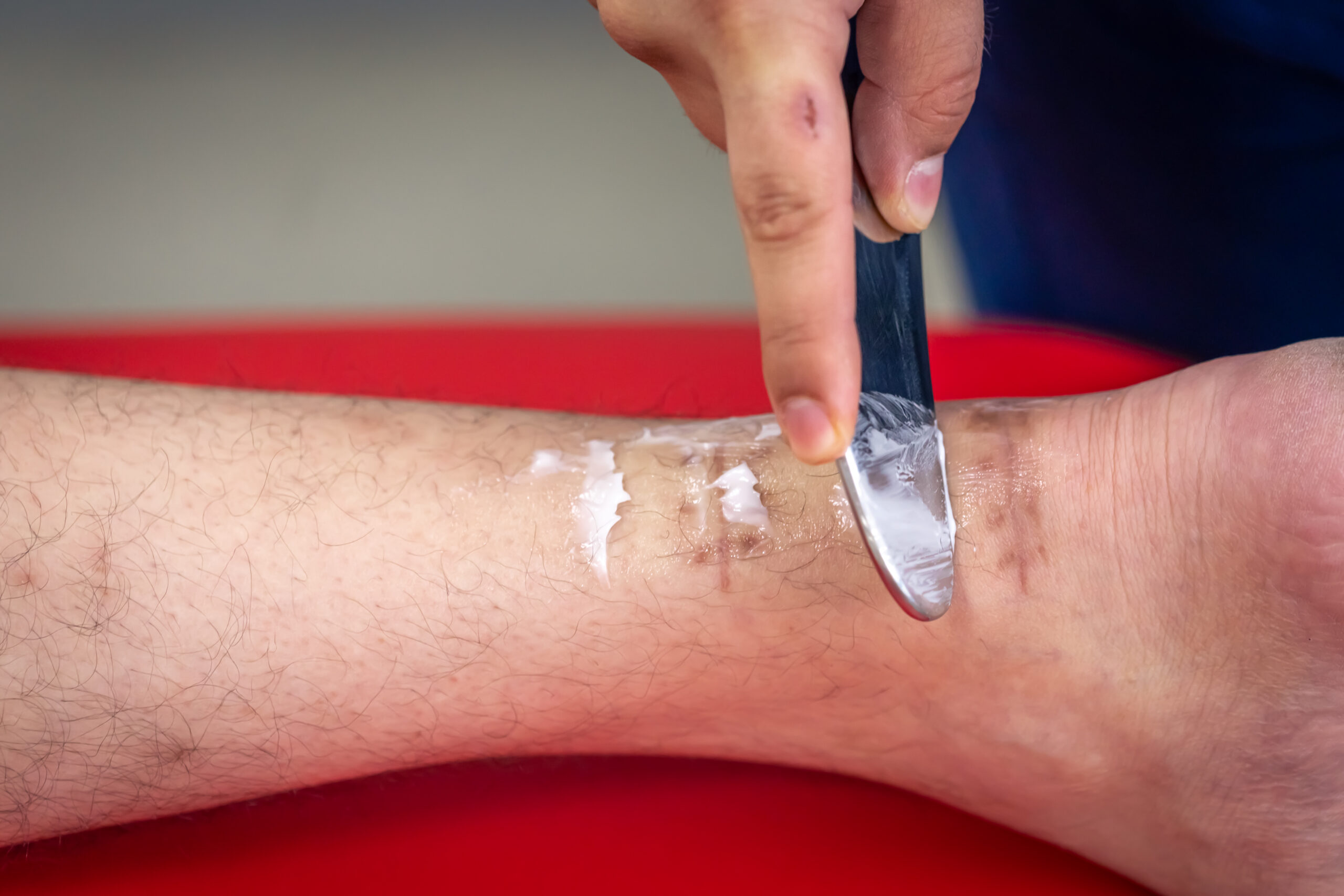Deep Vein Thrombosis (DVT): Expert Diagnosis, Treatment, and Prevention Guide

Deep vein thrombosis (DVT) is a severe medical condition that involves the formation of a blood clot in the deep veins that run throughout the body. All these blood clots tend to come up at your legs though other parts of the body may also include your arms and pelvis.
Have deep vein thrombosis specialists needs? Dr. How wonderful, no more concern because a well trained vascular surgeon Dr. Luv Luthra, who had achieved MBBS, MS General Surgery, MCh Vascular & Endovascular Surgery, and DNB in Peripheral Vascular Surgery will be here to guide you.
Dr. Luthra is the Director of Chand Vascular Centre and Diabetic Foot Clinic, in Ludhiana and strives to offer holistic vascular care.
What is Deep Vein Thrombosis?
Deep vein thrombosis (DVT) is the development of blood clots in the large veins located deep in the muscles. You are like the highways of your body. When a clot is formed this is compared to an obstruction of a normal blood flow. This may cause swelling and painfulness in addition to other serious problems.
The condition is not as rare as people might believe. It grips hundreds of thousands of people annually. Any person can develop DVT, but some factors predispose others to the condition, including lack of activity, surgery, and prescribed drugs.
Recognizing the Signs of deep vein thrombosis (DVT)
The symptoms of DVT can be difficult to detect because they are not necessarily present at once. Others may experience a sensation of warmth, swelling, or pain in the leg. The skin may turn red or sensitive upon contact However, some have DVT and are not manifested in any way, thus it is even more life threatening.
Once you notice these warning signs, it is essential to seek medical help. Experts in deep vein thrombosis, deep vein thrombosis doctors, are health care providers who specialize in the care of blood vessel disorders. Dr. Luthra, a specialist in DVT, can be seen as one who has years of experience in diagnosing and treating vascular conditions. Such specialized medical practitioners can easily determine whether you have DVT and initiate the appropriate medication.
Getting the Right Diagnosis
When you see a DVT specialist, they will inquire about your symptoms and your previous medical history. Dr. Luthra has extensive training and experience, having worked as the Director of Chand Vascular Centre and Diabetic Foot Clinic in Ludhiana.
He proceeds with practical steps in DVT diagnosis to have a correct diagnosis. Resting on such indications, doctors are able to conduct special tests to find out a presence of spills. A test that is widely used is known as an ultrasound, whereby sound waves are employed to get an image of your blood vessels.
Blood tests can be done that can assist your doctor in assessing whether you are at risk of clots beforehand. These tests analyse the blood in order to detect the availability of special proteins, which assist in the detection whether your blood is coagulating or not.
What is the Best Treatment For DVT?
The positive side is that DVT is treatable at early stages. Treatment guidelines help physicians in selecting the most effective treatment for each patient. Its primary aim is to prevent the expansion of a clot and prevent its spreading to other regions of your body.
Many people ask the question, “Can DVT be cured?” The correct reply is yes! Most people affected recover fully with proper treatment. That being said, however, it is essential to listen to your physician and follow all prescribed medications.
Which is the best treatment for DVT? This depends on the case of every individual, but the most common drugs used are special drugs known as blood thinners. The medicines do not help thin your blood, but rather help prevent new clots from developing and break down existing clots.
The Role of Exercise in Recovery
DVT treatment and exercise go together. Even removing a person to bed rest seems counterintuitive, though in fact, there is a lot of value in gentle movement once one has DVT. Light exercises and walking help enhance blood flow and prevent the formation of new clots.
Your physician will provide you with specifications on when and how to exercise safely. This typically involves taking short walks to increase your activity further as you improve.

Expert Care Makes a Difference
When it comes to treating DVT, it is essential to have the right medical team. Specially trained doctors: Doctors who deal specifically with deep vein thrombosis are highly specialized and can bring years of experience and training to your care. Dr. Luv Luthra is a highly qualified vascular surgeon, holding degrees in MBBS, MS General Surgery, MCh Vascular & Endovascular Surgery, and DNB Peripheral Vascular Surgery.
Dr. Luthra is the Director of Chand Vascular Centre and Diabetic Foot Clinic. He is a specialist in DVT treatment and DVT diagnosis, thus patients receive quality care that is informed by the most current DVT diagnosis guidelines and DVT treatment guidelines.
Dr. Luthra is a vascular surgeon specializing in the diagnosis and treatment of vascular disorders that affect the cardiovascular system, including both arteries and veins. This professional knowledge is indispensable in giving holistic DVT care.
Prevention is Key
Prevention of DVT is usually simpler than treatment of DVT. Things like being constantly in motion, drinking plenty of water, and avoiding prolonged periods of sitting can help lower your risk. When travelling non-gastric distances, be sure to talk around.
Individuals undergoing surgery or spending time in the hospital may require special anti-clotting stockings or drugs.
Moving Forward with Confidence
Knowledge is power, and understanding DVT puts you back in the driving seat. Bear in mind that DVT treatment, exercise, and proper medical care, provided by qualified DVT specialist doctors, will result in successful cases for the majority of patients.
Contact a qualified physician to get knowledgeable help with symptoms of DVT, or to inquire about the condition and how to prevent it. Early diagnosis and treatment are opportunities for painless learning.
Ready to schedule your next appointment? Schedule an appointment with our vascular experts. Our robust DVT diagnosis and treatment protocol, combined with individualized treatment plans, ensures that your treatment is as effective as possible.



